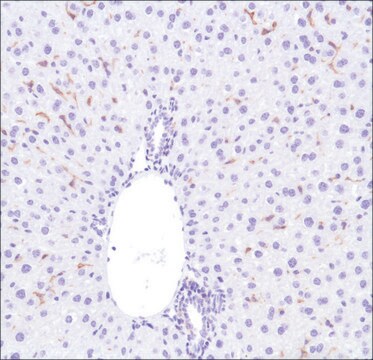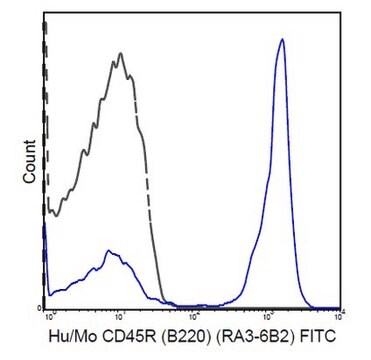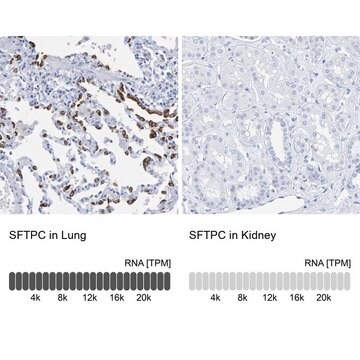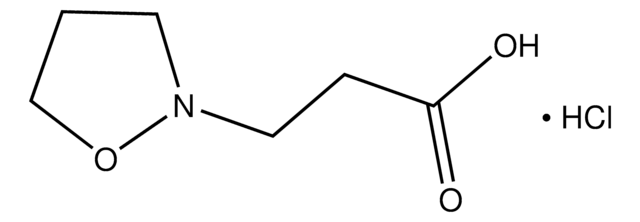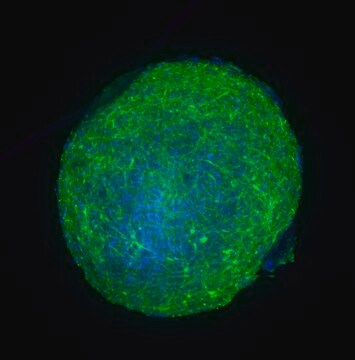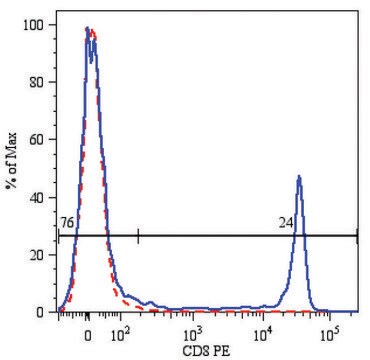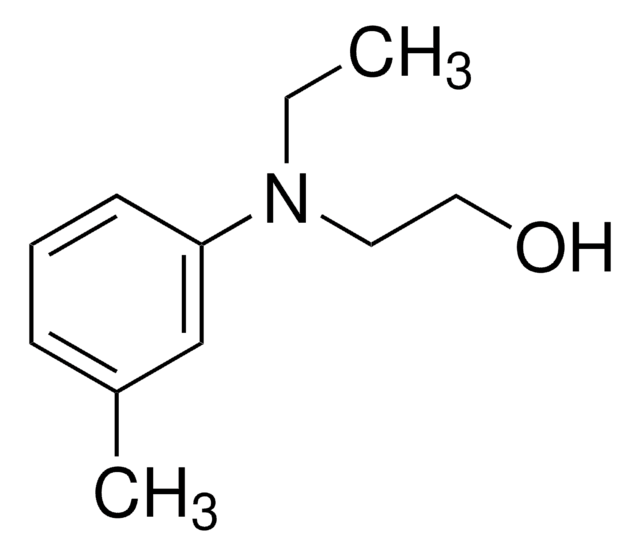MABF148D
Anti- CD161 (NK1.1) (mouse), APC, clone PK136 Antibody
clone PK136, from mouse, Allophycocyanin conjugate
Synonym(s):
Killer cell lectin-like receptor subfamily B member 1B allele A, CD161 antigen-like family member B, Lymphocyte antigen 55b (Ly-55b), NKR-P1 34, Natural killer cell surface protein NKR-P1B allele SJL/BALB (NKR-P1B), CD161b, CD161 (NK1.1)
About This Item
Recommended Products
biological source
mouse
Quality Level
conjugate
Allophycocyanin conjugate
antibody form
purified antibody
antibody product type
primary antibodies
clone
PK136, monoclonal
species reactivity
mouse
packaging
antibody small pack of 25 μg
technique(s)
flow cytometry: suitable
isotype
IgG2aκ
UniProt accession no.
target post-translational modification
unmodified
Gene Information
mouse ... Klrb1C(17059)
Related Categories
General description
Immunogen
Application
Inflammation & Immunology
Immunoglobulins & Immunology
Quality
Flow Cytometry Analysis: 0.125 μg from a representative lot detected CD161 (NK1.1) in one million C57Bl/6 splenocytes stained with FITC Anti-mouse CD3e.
Physical form
Storage and Stability
Note: It is recommended to store the product undiluted at 2-8°C and protected from prolonged exposure to light. Do not freeze.
Other Notes
Disclaimer
Not finding the right product?
Try our Product Selector Tool.
Storage Class Code
12 - Non Combustible Liquids
WGK
nwg
Flash Point(F)
Not applicable
Flash Point(C)
Not applicable
Certificates of Analysis (COA)
Search for Certificates of Analysis (COA) by entering the products Lot/Batch Number. Lot and Batch Numbers can be found on a product’s label following the words ‘Lot’ or ‘Batch’.
Already Own This Product?
Find documentation for the products that you have recently purchased in the Document Library.
Our team of scientists has experience in all areas of research including Life Science, Material Science, Chemical Synthesis, Chromatography, Analytical and many others.
Contact Technical Service
